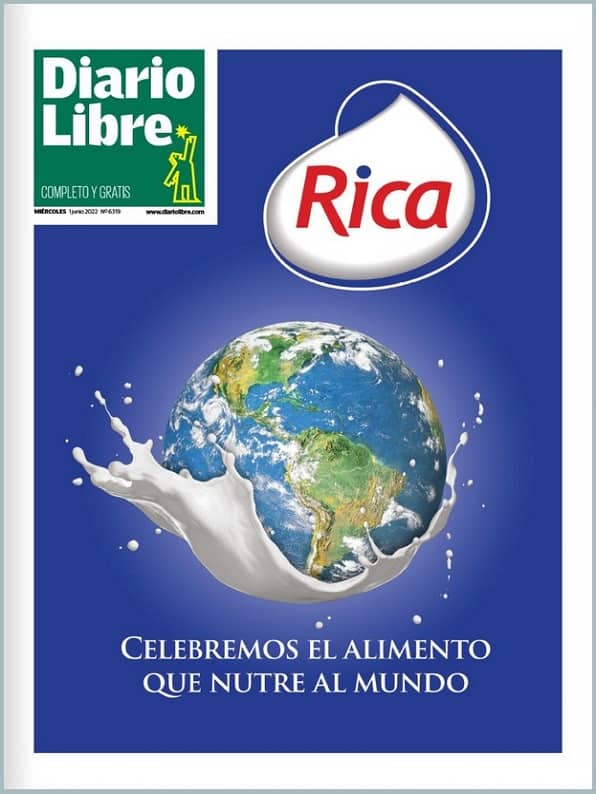Fisher: the social reality of the Dominican Republic discourages British companies
AL has managed more with less growth, says the ambassador

SANTO DOMINGO. Fifty years after the April Revolution and the Second Intervention by the United States, the Dominican Republic has not achieved a reduction in the poverty levels equal to other countries in Latin America, in spite of having a greater economic growth, according to considerations by the ambassador of His Majesty of the United Kingdom of Great Britain and Northern Ireland in this country, Stephen Fisher.
In the name of the government of the United Kingdom, Fisher allowed himself to congratulate the Dominican government for its work in education, the promotion of the Mipymes and of agriculture for the reduction of poverty, although he said that there still does not exist the sensation that poverty is "really in remission" nor that the earnings are permanent and sustainable.
The ambassador cited numbers from the World Bank that indicated that over the last 20 years the poverty level in Latin America has gone down from 44% to 28%, a decline that was strongest between 2006 and 2013. Nevertheless, he said that in the Dominican Republic poverty has barely been reduced from 44% to 41% during those seven years, while Chile reduced poverty from 29% to 14% and Peru from 49% to 25%.
In contrast, while the middle class of Latin America surpasses the poor, in this country it is smaller than it was 15 years ago.
Stephen Fisher commented that the diplomats of Santiago Chile attribute the reduction of poverty by 50% in seven years to the economic growth, to the increase in salaries and to a greater participation of women in the labor market "with decent salaries," besides the "clean" functioning of the Police and the Judicial System.
Fisher, who took part in the first business breakfast of the British Chamber of Commerce in the Dominican Republic (BritCham) recalled that the British ambassador in 1965, Stafford Campbell, said in his reports to the Ministry of Foreign Relations of the United Kingdom, that the governing class had a great responsibility with the Civil War, and he considered that the social injustice and corruption was coming to a halt in the country. The diplomat asked how Campbell might see the Dominican Republic 50 years after the Civil War.
Fisher said that the judicial system keeps the Dominican Republic from becoming "the business partner that we would all like to have," because it is "slow, frustrating and unfair," something that the citizens here suffer and that companies from the United Kingdom, who come here optimistic to contribute with development of the country, but later become "discouraged" when they face the local reality.
The ambassador has been in the Dominican Republic for five years. His first duty station as a diplomat was Singapore some 10 years ago, where - according to what he recalled - they went from being a failed state in 1965 to becoming one of the richest in the world in 1995. Fisher said that the keys for this country were, among other things, a trustworthy and transparent business environment, a "hard line against corruption," where there is no impunity, "either for the rich or for the politically well-connected."
Fisher's diplomatic mission will end in a few months, and he reaffirmed that he would like to see in the future a Dominican Republic with greater investment from the United Kingdom and a greater bilateral commerce with an integrated society, with the majority of the persons employed in the formal sector and with higher real salaries, without impunity, with access to justice, with the drug trafficking defeated and with violent crimes and gender homicides reduced, with extreme poverty eradicated and general poverty reduced "radically," with a well paid police force, that is efficient and respected, and where the immigrants are well treated, without arbitrary deportations or tolls on the frontier. Fisher has also been a diplomat in Budapest and Venezuela.
Relations between the DR and the United Kingdom
-British investment in the country surpasses US $1 billion.
-The United Kingdom is the fifth largest investor in the Dominican Republic.
-The United Kingdom is the principal importer of Dominican fruits, for an amount of more than US $90 million.
-The Dominican Republic is the second largest provider of fresh plantains to the United Kingdom.
-The European country was the first country in recognizing Dominican independence.
-The Dominican Republic is the second-largest market of the United Kingdom in Central America and the Caribbean.


 Diario Libre
Diario Libre
 Diario Libre
Diario Libre